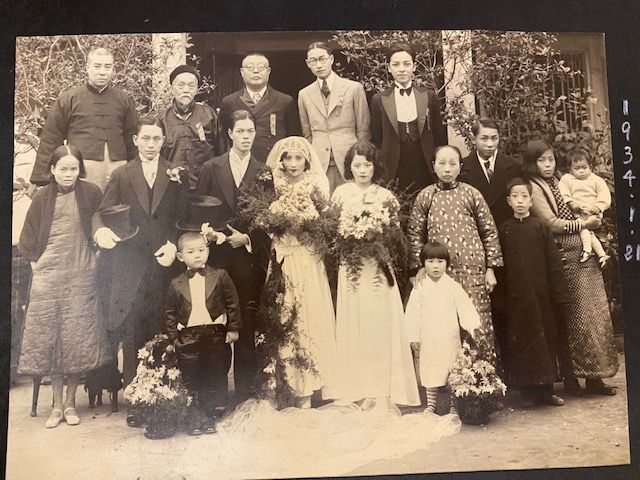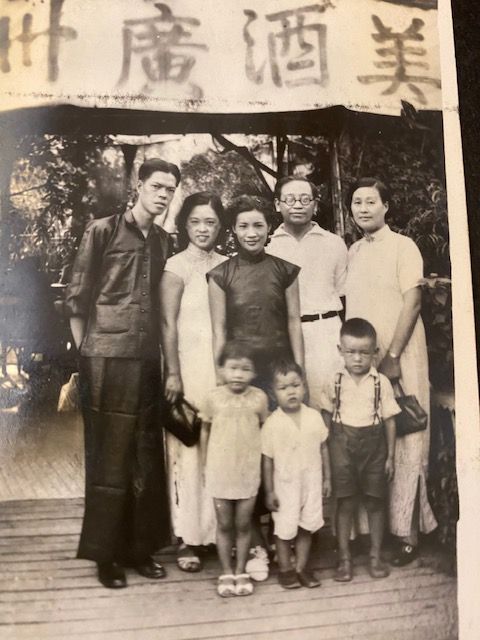Memoirs of a Loser 04: Suffering
After crossing the border from Shenzhen and returning to Hong Kong, I was shocked and decided, but I felt that there was a long way to go. The border guards said, "Next time I come back, I will follow the regulations of the Public Security Bureau." But if I couldn't follow the new regulations, it meant I couldn't come back. Unless the rules change back to normal. This is not a situation that I can foresee, even if I correct it. That said, if I ever had to go home, it would be an unpredictable gamble of my life. What's more worrying is what happened to Li Yi. Although she has a gentle temperament, she has always been persistent about right and wrong. She said that the CCP document stated that "70% of the people who came back from Hong Kong are spies", so if she wanted to testify that I was a "spy", it would be impossible for her personality. But since the Cultural Revolution began in 1966, I have seen many "impossible" things. Under the forced confession, she may find it difficult to persist. Then, our marriage relationship will be broken. I have a hard time imagining what that would be like. And the worst possibility is that she is also beaten as a "spy", imprisoned or shot to death. What about my two lovely daughters? I think about this ending every day, and every time I'm in a cold sweat.
What absurd things have happened since the Cultural Revolution? The non-leftist media in Hong Kong reported extensively that many famous writers and intellectuals whom I admired were slapped, Lao She committed suicide, the famous table tennis player Rong Guotuan who returned from Hong Kong committed suicide, many CCP veterans, politicians and even President Liu Shaoqi were killed Criticism and abuse, my two uncles and their families in Beijing and Guangzhou have no news, and my sister, brother, and sister in mainland China neither correspond with me nor with my father. None of this has happened directly to me yet.


At the beginning of the Cultural Revolution, in China, the first sentence on the phone was not "Hello," but "Long live Chairman Mao", which startled people. When I went through the Chinese customs, the Red Guards seized power for a period of time. The customs officer asked me to stand aside and read "Chairman Mao's Quotations", and then asked me, "What are you doing here in Shenzhen?" I said, "Look at my lover, child." (At that time in mainland China, wives and husbands were called "lovers"); when asked, "What do they do?" Answered "Speak up!" Asked "What?" I really don't know how to answer these ignorant questions.
Back then, everything was turned upside down. Cleanliness is considered a bourgeois habit, filth is the true nature of the proletariat; politeness is a bourgeois ideology. When his wife took the students on an overseas visit, she covered the students with their quilts and helped them mend their clothes at night. The Cultural Revolution poster was exposed by the students for "educates her classmates on bourgeois motherly love." What weird, upside-down thing doesn't happen?
I slept, got up, worked, wrote, and edited and published the monthly Seventies. Life is always like a thorn in the heart.
I went to Liyi's brother, an underground party member in Hong Kong. He didn't worry about his sister, but said calmly that if you didn't do anything, don't panic. The implication is that his party spirit overrides his trust in his sister and in me.
The funder of "The 1970s", Shanghai Bookstore, is the "patriotic" capital of overseas Chinese, but my actual leader is Mr. Lan of the CCP's publishing industry. The more senior Mr. Tang was nowhere to be found at that time, and it is said that he was also transferred back to the mainland to criticize him. I told Mr. Lan what happened, and I thought he would communicate through organizational relationships, at least to let the Shenzhen task force know that I was not a British and American spy, but was the editor-in-chief of a magazine led by the CCP. But when he heard me say that Li Yi was under censorship, he kept silent. So, I knew that he was either incapable of doing anything, or didn't want to be a suspect, or trusted the organization more than he knew about me over the years.
I send 100 Hong Kong dollars to Liyi every month, and go to the bank to get a receipt with her signature. Knowing from the reply note that she is still alive is the only connection between us.
For more than 3 months, every day was like being tortured. I barely supported my almost collapsed spirit and kept the magazine published on a monthly basis.
(Published on April 28, 2021)
"Memoirs of a Loser" serial catalog (continuously updated)
("Memoirs of a Loser" was previously published in "Apple Daily" and is now serialized in Matters)
Like my work? Don't forget to support and clap, let me know that you are with me on the road of creation. Keep this enthusiasm together!

- Author
- More